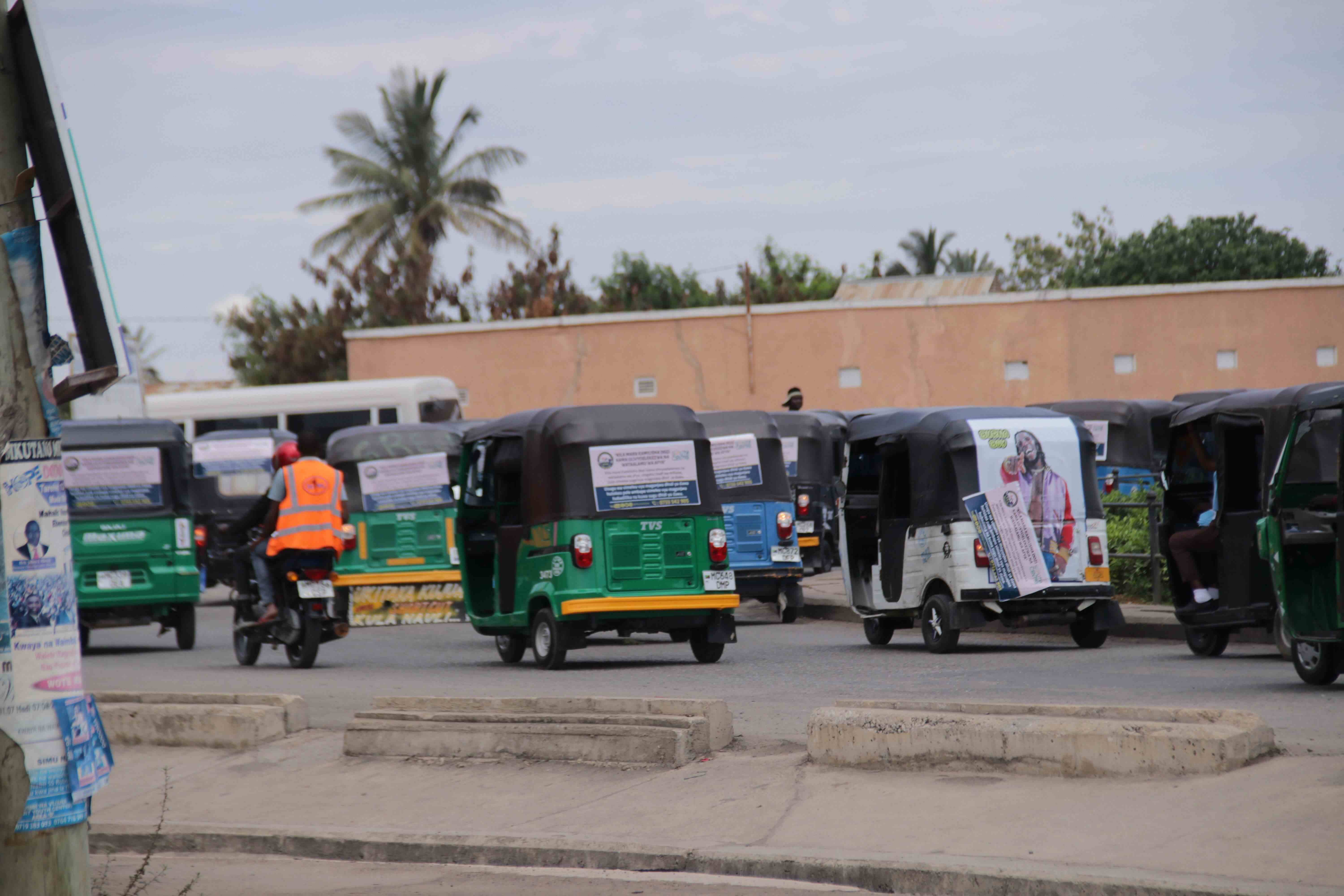The Use of Public Transport in Engaging Community on AMR (the use of "bajaji")
- Taking into consideration the difficulty of reaching a large audience directly in the COVID19 situation, RBA Initiative under the funding support from the South Center wanted to reach the public at large with key AMR messages while keeping minimal physical gatherings of people. It is in this regard that the RBA Initiative conducted a Bajaji campaign in Dodoma-Tanzania. Three wheeled motorcycles are commonly known as “bajaji” in Tanzania and “Tuk Tuk” in the other parts of the World.
- This campaign used the three wheeled motorcycle ‘’bajaji’ ’to transfer the AMR messages to the public through the advert with key AMR messages in Kiswahili language placed behind the Bajaji.“Bajaji” are widely used as a means of public transport in many urban settings of Tanzania. This was an amazing opportunity to build AMR awareness among the public in Dodoma. Being visually unavoidable the message reached different people, from those who sat inside the “bajaji” (they saw the message on the ‘bajaji’ in front), pedestrians, people at the public transport stations and including those with private means of transport. Furthermore, Bajaji drivers received AMR training and distributed AMR flyers to their passengers and the general public through an organized cavalcade around the city of Dodoma. The training covered the general concept of AMR so that the drivers could understand and disseminate the messages. The drivers were designated as ambassadors to spread AMR messages, distribute AMR fliers during and after the campaign and educate the community about AMR.
- The training also included journalists from various media outlets, policymakers, and other guests. RBA Initiative also used edutainment, with a special AMR Kiswahili song performed during the training. The link to the bajaj campaign photos https://www.rbainitiative.or.tz/gallery.php?gallery=bajaj

John Doe
Lorem ipsum dolor sit amet, consectetur adipisicing elit. Pariatur quidem laborum necessitatibus, ipsam impedit vitae autem, eum officia, fugiat saepe enim sapiente iste iure! Quam voluptas earum impedit necessitatibus, nihil?
Reply
John Doe
Lorem ipsum dolor sit amet, consectetur adipisicing elit. Pariatur quidem laborum necessitatibus, ipsam impedit vitae autem, eum officia, fugiat saepe enim sapiente iste iure! Quam voluptas earum impedit necessitatibus, nihil?
Reply
John Doe
Lorem ipsum dolor sit amet, consectetur adipisicing elit. Pariatur quidem laborum necessitatibus, ipsam impedit vitae autem, eum officia, fugiat saepe enim sapiente iste iure! Quam voluptas earum impedit necessitatibus, nihil?
Reply
John Doe
Lorem ipsum dolor sit amet, consectetur adipisicing elit. Pariatur quidem laborum necessitatibus, ipsam impedit vitae autem, eum officia, fugiat saepe enim sapiente iste iure! Quam voluptas earum impedit necessitatibus, nihil?
Reply
John Doe
Lorem ipsum dolor sit amet, consectetur adipisicing elit. Pariatur quidem laborum necessitatibus, ipsam impedit vitae autem, eum officia, fugiat saepe enim sapiente iste iure! Quam voluptas earum impedit necessitatibus, nihil?
Reply
John Doe
Lorem ipsum dolor sit amet, consectetur adipisicing elit. Pariatur quidem laborum necessitatibus, ipsam impedit vitae autem, eum officia, fugiat saepe enim sapiente iste iure! Quam voluptas earum impedit necessitatibus, nihil?
Reply